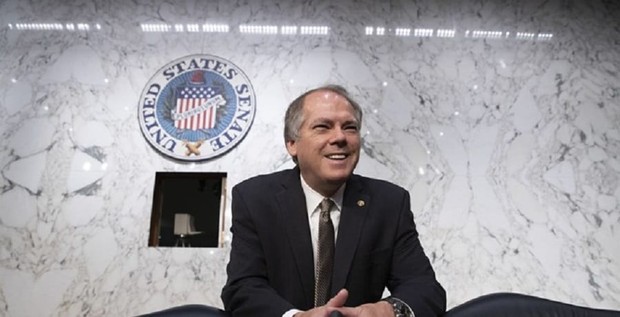
FILE – In this June 7, 2017 file photo, James Wolfe, then-director of security with the Senate Intelligence Committee, waits for the start of a hearing with the nation’s national security chiefs about Russia’s election meddling, on Capitol Hill in Washington. Federal prosecutors are accusing Wolfe with lying to the FBI about contact he had with reporters who covered the committee. (AP Photo/J. Scott Applewhite, file)
The big news Thursday was that the former security director of the Senate Intelligence Committee, 58-year-old James Wolfe, was arrested for lying to federal agents. This is a “process crime” that is a place holder for other future charges in connection with leaking sensitive material to several reporters. Among them 26-year-old Ali Watkins. Watkins is currently on the staff of the New York Times but the main leaks to her took place when she worked for McClatchy and BuzzFeed when, coincidentally, she was sleeping with Wolfe.
In the case of Wolfe, who is 57, these journos most prominently included Ali Watkins, a 26-year-old Times reporter with whom he was romantically involved for three years — mostly while she was working her way to the Gray Lady as a national-security reporter for the Huffington Post, Politico, McClatchy, and BuzzFeed. The indictment alleges that the couple exchanged “tens of thousands of electronic communications, often including daily texts and phone calls,” as well as “encrypted cell phone applications.”
Now, sit down because I know you’ll be shocked to hear this: Wolfe’s bipartisan, non-partisan intelligence leaks from the bipartisan, non-partisan Senate Intelligence Committee had a decidedly anti-Trump flavor.
For example, in spring 2017, Wolfe tipped Ms. Watkins that Russian spies had attempted to recruit Trump-campaign adviser Carter Page back in 2013. This leak did not occur in a vacuum. It had been revealed that the Obama Justice Department used the unverified Steele dossier, generated by the Clinton campaign, to obtain FISA-court surveillance warrants against Page. To control the damage, Democrats and other, uh, non-partisans wanted to claim that the FBI had reasons independent of the dossier to suspect that Page was a clandestine agent of Russia.
Wolfe obliged with the leak, enabling Watkins to write a BuzzFeedarticle provocatively headlined “A Former Trump Adviser Met with A Russian Spy” — although the story could just as easily have been entitled “A Former Trump Adviser Helped Justice Department Prosecute Russian Spies.” (Page voluntarily provided information that prosecutors used to arrest Moscow’s operatives.)
The indictment implies that Watkins’s story was based in part on top-secret intelligence provided to the committee by a U.S. intelligence agency on March 17. On that day, Wolfe and Watkins exchanged 82 texts, in addition to having a lengthy phone call. On April 3, the day the story was published, they exchanged 124 texts and spoke on the phone after Watkins appeared on national television to discuss her report.
…
While the committee posed as the embodiment of discretion, its security director was offering himself as a regular anonymous source. According to the indictment, Wolfe told one journalist he could play that role, provided that his name never be mentioned to the journalist’s colleagues. More touching was his text to Watkins, in December 2017, around the time their romance ended:
I’ve watched your career take off even before you ever had a career in journalism. . . . I always tried to give you as much information as I could and to do the right thing with it so you could get that scoop before anyone else. . . . I always enjoyed the way that you would pursue a story like nobody else was doing in my hallway. I felt like I was part of your excitement and was always very supportive of your career and the tenacity that you exhibited to chase down a good story.
Not quite “Shall I compare thee to a summer’s day,” but you get the point.
When interviewed by the FBI on December 15, Wolfe denied knowing Watkins’s sources until he was confronted with pictures showing the two of them together. He then conceded that he had lied and acknowledged having had a personal relationship with Watkins, but denied giving her non-public information or investigative leads. He flatly denied contacts with other reporters, though he had evidently been in regular contact with them.
Despite what some people are making this sound like, the FBI did not get possession of Watkins’s texts/calls/emails but they did get the metadata that shows who the communications was with. From what we’ve seen in the indictment, they clearly subpoenaed Wolfe’s email and texts.
Today, BuzzFeed’s editor-in-chief was on Reliable Sources with Brian “Tater” Stelter to talk about the affair.
There was a lot of mewling but this was his bottom line point:
“I would also say this, by the way, is the conversation the Department of Justice wants us to be having,” Smith said Sunday on CNN. “I don’t see why else there are paragraphs of that in an indictment about a guy who allegedly lied to the FBI.”
He said that the focus should instead be on how the Justice Department took extreme measures in obtaining Watkins’ records without giving her prior notice.
“I think that they would love to have a conversation you know, about a reporter’s personal life … rather than a conversation about what they were doing,” Smith said, “what impelled them to use this kind of last resort tool of covertly spying on journalists.”
That’s going to be of little use for two reasons. First, and foremost, the Justice Department followed protocol in getting access to the metadata from Watkins’s communications.
Justice Department guidelines state that when private, third-party communication records of reporters are obtained through a subpoena, “the affected member of the news media shall be given reasonable and timely notice of the Attorney General’s determination” before those records are seized.
The guidelines say, however, that the attorney general can bypass prior notification if he or she “determines that, for compelling reasons, such notice would pose a clear and substantial threat to the integrity of the investigation, risk grave harm to national security, or present an imminent risk of death or serious bodily harm.”
A Justice Department official told the Washington Examiner on Friday that the FBI had determined advance notice to Watkins would have jeopardized its investigation.
And, most importantly, the real issue is the total absence of any semblance of journalistic ethics (yeah, I know, I laughed writing it).
In Watkins’s defense, she disclosed the fact that she and Wolfe were screwing to BuzzFeed management, and given the situation it is hard to believe that Smith was not made aware of the affair. They made the decision to let her continue covering the Senate Intelligence Committee and using him as a source.
Later, a BuzzFeed spokesman told TheDCNF that the company does not dispute The Times’ reporting on Wolfe’s indictment, meaning that at least some BuzzFeed editors were aware of Watkins’ relationship with the Senate Intelligence aide.
It was never disclosed in any of the pieces Watkins wrote for BuzzFeed that she had a conflict of interest with an individual that provided her with information. If her editors knew about this relationship, it remains unclear why they did not make this known to readers or prohibit her from covering the Senate Intelligence committee
At one time, this was a no-no.
A reader found what I was thinking of. (https://t.co/s3b3AqyfgQ) Quote from Abe Rosenthal's a doozie: pic.twitter.com/SMM6F4ME5e
— Mollie (@MZHemingway) June 8, 2018
What happened here is quite clear. BuzzFeed has established a reputation for playing fast and loose with the usual strictures on how reporters operate (see the lawsuit underway in Florida about their decision to publish the Trump dossier) and that looseness is approaching recklessness at a good clip. If they’d pulled Watkins off the Senate Intelligence Committee security director and beat, they’s have lost a valuable conduit of information. And since the news business is all about the clicks, they decided that her undercover reporting was worth more than some bullsh** ethical consideration.
Smith is accusing the FBI of trying to deflect attention from how they seized Watkins’s communications records by highlighting her using sex to get stories. Smith is trying to deflect attention from his own abandonment of ethics by questioning the FBI’s procedures. Only one of the two really has anything to hide. For once, it isn’t the FBI.
=========
=========
Like what you see? Then visit my story archive.
Follow @streiffredstate
I’m on Facebook. Drop by and join the fun there.
=========
=========
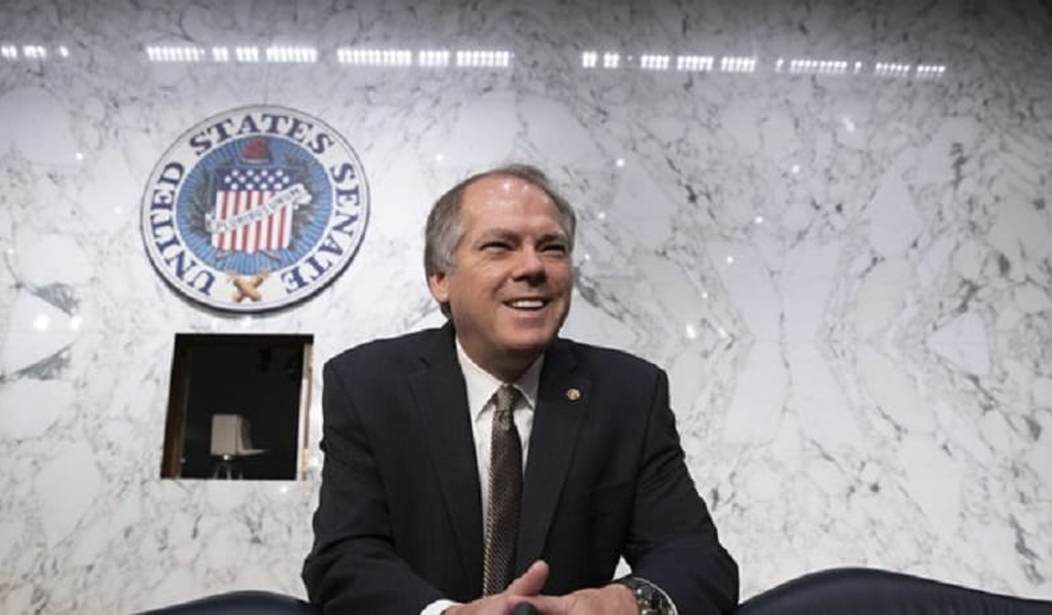

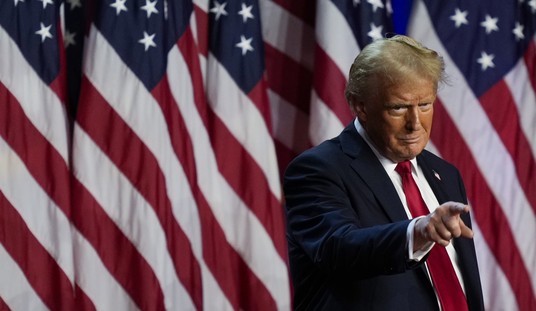


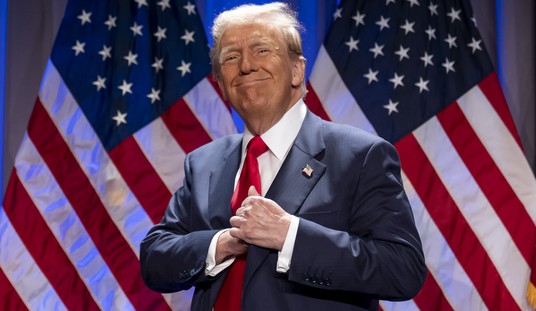







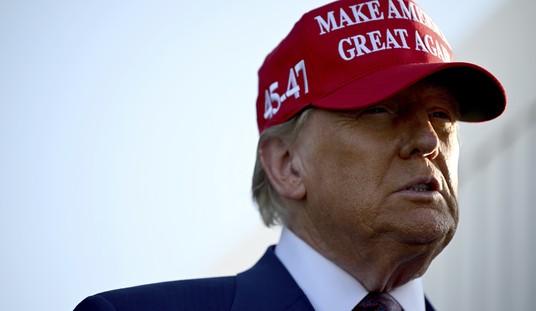
Join the conversation as a VIP Member